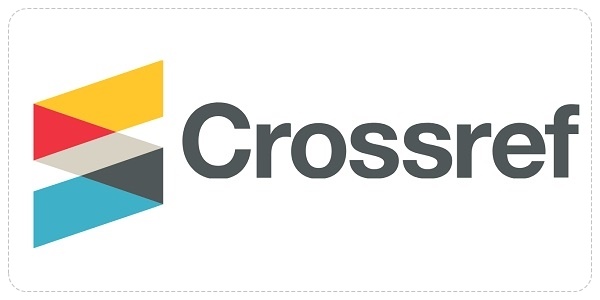CAPABILITY APPROACH AS A BASIC EDUCATION FOR CHILDREN WITH CEREBRAL PALSY IN INDONESIA
Abstract
Abstrak
Latar belakang kajian ini bermula dari minat dalam melihat masalah dalam pendidikan untuk anak-anak Cerebral Palsy di tengah situasi sosial, budaya, dan ekonomi di negara membangun seperti Indonesia. Anak-anak Cerebral Palsy yang mempunyai masalah pada otak, memberikan tantangan untuk guru sekolah untuk menyampaikan pendidikan untuk anak-anak Cerebral Palsy. Walau bagaimanapun, peranan kerajaan sebagai pembuat kebijakan adalah penting untuk membuat peraturan yang baik dalam pendidikan untuk kanak-kanak dengan Cerebral Palsy. Tujuan kajian ini adalah untuk memperluaskan pendidikan untuk anak-anak Cerebral Palsy yang diperlukan untuk mendapatkan perhatian lebih lanjut mengenai pelaksanaan pendidikan di Indonesia. Penelitian ini menggunakan Filsafat Pendidikan sebagai kerangka teori dengan unsur-unsur metodis yakni deskripsi, interpretasi, refleksi, dan hermeneutika. Metode dalam kajian ini ialah kualitatif dengan berdasar pada sumber data kepustakaan. Hasil penelitian ini yaitu pendekatan kemampuan dapat menjadi dasar dalam penerapan pendidikan bagi anak berkebutuhan khusus Cerebral Palsy, mengingat persoalan dilematis ketidaksesuaian antara teori dan praktik dalam pendidikan anak-anak Cerebral Palsy di Indonesia
Abstract
The background of this study started from the interest in exploring the case of education for children with Cerebral Palsy in the middle of social, culture, and economy situations in developing country such as Indonesia. Children with Cerebral Palsy which has a problem on brain, gives a challenge for a school teacher to deliver the education for children with Cerebral Palsy. However, the role of goverment as a policy maker are important to make a good regulation in education for children with Cerebral Palsy. The aim of this study is to extending that education for children with Cerebral Palsy is necessary to get more attention regarding to the implementation of education in Indonesia. The methohodology in this study is qualitative research based on literature data. This study using Philosophy of Education as a theoretical framework with the element of methodology: description, interpretation, reflection, and hermeneutics. The result of this study is capability approach could be a basic education for children with special needs Cerebral Palsy in Indonesia regarding to the dilema incoherence between theory and practice in apllication of special education for children with Cerebral Palsy.
Keywords
Full Text:
PDF (Bahasa Indonesia)References
Aditama, F. K.( 2018). The Performance of Communication Children with Cerebral Palsy YPAC Surabaya, Lingua Franca: Jurnal Bahasa, Sastra, dan Pengajarannya, 52(6): 52 – 62.
Barnadip, I. (2017). Philosophy of Education System & Methodology. Yogyakarta: Penerbit Ombak.
Basheka, B. (2009). Management and academic freedom in higher educational institutions: Implications for quality education in Uganda. Journal Quality in Higher Education 15(2): 135-146.
Creswell, J. W. (2007). Qualitative Inquiry and Research Design. Choosing Among Five Approaches. London: Sage Publication.
Curren, R. (2007). Philosophy of Education. London: Blackwell Publishing Ltd.
Dewey, J. (1961). Philosophy of Education (Problems of Men). Paterson: Littlefield, Adams.
Dwairy, M. (2010). Parental Acceptance-Rejection: a Fourth Cros-Cultural Research on Parenting and Psychological Adjustment of Children. Journal of Child and Family Studies, 19(1): 30-35.
Efendi, M. (2006). An Introduction to Psychopedagogy Children with Special Needs. Jakarta: Bumi Aksara.
Gandhi, T. W. (2016). Mazhab-mazhab Philosophy of Education. Yogyakarta: Ar-Ruzz Media.
Harry, S. (2012). The Philosophy of Education. An Introduction. London: Routledge.
Jalaluddin & Idi, A. (2007). Philosophy of Education. Yogyakarta: Ar-Ruz Media.
Lindqvist, B. (1999). Education as a fundamental right.Educator’s Update,2,6–7.
Terzi, L. (2005). Equality capability and social justice in education: re-examining disability and special educational needs (Doctoral dissertation, Institute of Education, University of London).
Terzi, L. (2008). Justice and equality in education: A capability perspective on disability and special educational needs. Bloomsbury Publishing.
Mahasin. (2011). A Proposed Guide for Accreditation of Teacher Education in Developing Countries (A Descriptive Analytical Study). Jurnal Pendidikan Malaysia, 36(1): 11-24.
NCSE. (2014). Children with Special Educational Needs. 1-2 Mill Street Trim Co Meath: National Council For Special Education.
Ornstein, A. C. (1985). Introduction to the Foundations of Education. USA: Houghton Mifflin.
Ramli, M. A. (2014). Letters for Children with Biographical of a Father to Two Children Experiencing Cerebral Palsy. Malaysia: Anak Kuci Production.
Rufai, S. A. (2010). Educational Excellence and Learner Diversity: Can the Teacher Achieve Excellence in All Students?, Jurnal Pendidikan Malaysia, 35(2): 71-76.
Ruhela, R. (2017). Inclusive Education: New Paradigm of Teaching in Regard of Children with Special Needs. International Journal of Applied Research, 3(1): 647-652.
Rustini, S. (2013). A Memoir of Physiotherapist Cerebral Palsy From Pacitan. Jakarta: Libri BPK Gunung Mulia.
Salich, V. (2009). Cerebral Palsy. New Delhi: Jaypee Brothers Medical Publisher(s).
Salim, A. (2007). Pediatrics in Special Education. Jakarta: National Departement of Education.
Sankar, C., & Mundkur, N. (2005). Cerebral palsy-definition, classification, etiology and early diagnosis. The Indian Journal of Pediatrics, 72(10), 865-868.
Schofield, L. S. (2012). Community-Based Learning versus Traditional Courses in Statistics: Who Takes Them and Why. The American Statistician, 66(2), 118-123.
Suhartono, S. (2008). Philosophy of Education. Yogyakarta: Ar-Ruzz Media.
Sunarto. (1998). Student Developement. Jakarta: PT Rineka Cipta.
Terzi, L. (2010). What metric of justice for disabled people? Capability and disability. Measuring justice: Primary goods and capabilities, 150-173.
Uhbiyati, N. (1997). Education Sciences. Jakarta: PT. Rineka Cipta.
Warnock, M. and Norwich, B. (2010). Special Educational Needs, ed. Lorella Terzi. London: Continuum International Publishing Group.
DOI: https://doi.org/10.17509/pdgia.v17i2.17269
Refbacks
- There are currently no refbacks.
INDEXED BY

This work is licensed under a Creative Commons Attribution-ShareAlike 4.0 International License















